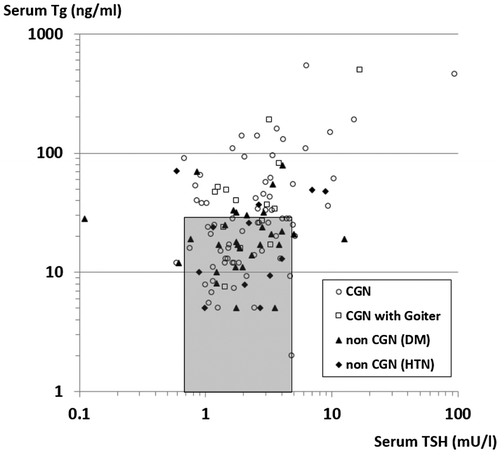Figures & data
Table 1. Clinical data and thyroid function in end-stage renal disease on haemodialysis: Comparison between CGN and non-CGN
Table 2. Prevalence of hypothyroidism in end-stage renal failure on haemodialysis: Comparison between the chronic glomerulonephritis (CGN) and the non-CGN groups
Figure 1. Correlation between elevated serum thyroglobulin (Tg) and TSH levels in the patients with ESRD on maintenance haemodialysis in the CGN group or the non-CGN group (nephropathy due to lifestyle related systemic disease, such as DM or HTN).

